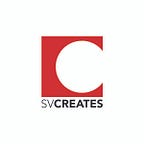Multicultural Arts Leadership Initiative (MALI)
By Roy Hirabayashi, MALI Program Manager
Back in the early 2000s, there only seemed to be a handful of artists and arts administrators of color actively speaking up to tell the story of the multicultural arts community in the San Jose area. Even today, some of the oldest arts organizations in San Jose come from many ethnic communities, yet 15 years ago, they did not have a voice in the process of designing equitable funding and programming. Finally in 2004, a group of artists of color formed First Voice to create our own discussions and support network. We realized that there was a lack of leadership training opportunities for multicultural artists and arts administrators that specially addressed the issues and concerns of organizations of color. So, Raul Lozano and I decided to pursue the idea to create a leadership program for multicultural artists. Soon after, Tamara Alvarado joined in to help form the concept and the Multicultural Arts Leadership Institute (MALI) was born.
Arts organizations of color have always worked from the values of diversity, equity, and inclusivity. MALI works to share these values with the larger arts community. The MALI curriculum and concept came from our participation in Arts Leadership for the Future offered by the Packard Foundation and the Management Center, the American Leadership Forum Fellowship, and the Executive Program for Nonprofit Leaders — Arts conducted by the Stanford Graduate Business School and the National Arts Strategies. These were good programs, but they all lacked a multicultural focus and perspective.
In 2008, MALI recruited the inaugural Class 1 — a group of multicultural creatives to build a network and increase the skills of artists in the region. Through our year-long training program, we coach local multicultural arts practitioners by giving them the technical skills, philosophical underpinnings, and networking opportunities necessary to grow and sustain their individual work, organizations, and arts sector in Silicon Valley. Our impact is documented in “We Are Enough: Equity, Inclusion, and Emergent leadership in Silicon Valley’s Multicultural Arts Community” — a brown paper commissioned by the School of Arts & Culture and authored by Dr. Maribel Alvarez. Today, there are a total of 137 MALI Alums, from Class 1 to the current Class 13. Many of the MALI Alums have moved on to executive and artistic director positions, eight are SVCREATES Laureates, and five have moved on to government jobs.
The MALI program is the proud recipient of the 2021 Creative Impact Award from the City of San Jose Arts Commission and the Office of Cultural Affairs. The recognition belongs to the MALI network. Your voice, advocacy, persistence, and dedicated creative work have made a difference for all of us here in San Jose.
MALI gives thanks to SVCREATES (formerly 1st ACT) for incubating the MALI program and to the Knight Foundation for providing the initial funding to create the program. Tamara Alvarado joined 1st ACT as the first MALI Program Manager and eventually became the Executive Director of the School of Arts and Culture at the Mexican Heritage Plaza, where MALI found its permanent home. Demone Carter took over the program after completing the program itself with MALI Class 4.
MALI also thanks the generous support of the Hewlett Foundation, Packard Foundation, Castellano Family Foundation, SVCREATES, Applied Materials, and the City of San Jose Office of Cultural Affairs for the many years of support and help.
Roy is a leader in North American taiko and a Northern California leader in the arts community known for starting organizations, fiscal management, fundraising, and empowering the next generation of leaders. He is co-founder of one of the seminal taiko groups in North America, San Jose Taiko, and the group’s former Artistic and Executive Director. Roy is also a co-founder and current director of the Multicultural Arts Leadership Institute at the School of Arts & Culture in San Jose. He has been active in developing San Jose’s Japantown and arts community, and has been a champion for social justice, multicultural arts, and cultural preservation. He is past chair of the board of the Japantown Community Congress San Jose and of the School of Arts and Culture at Mexican Heritage Plaza. As a nationally recognized folk and traditional artist, composer, producer, and collaborator in international projects, he is a recipient of the National Endowment for the Arts National Heritage Fellow and an American Leadership Forum John W. Gardner Leadership awardee. He is currently on the board of SVCREATES.
